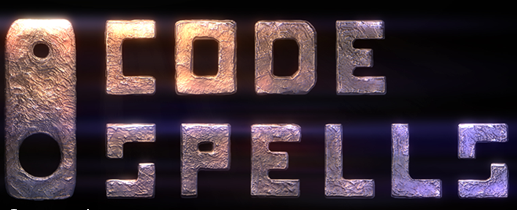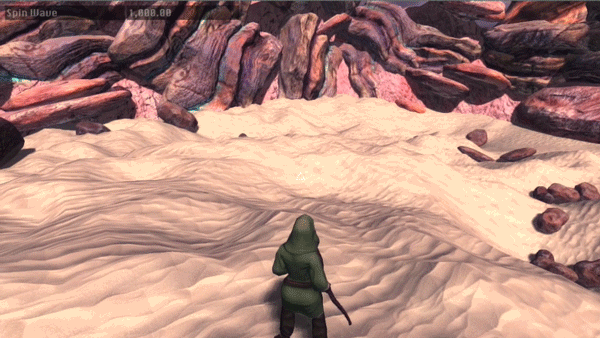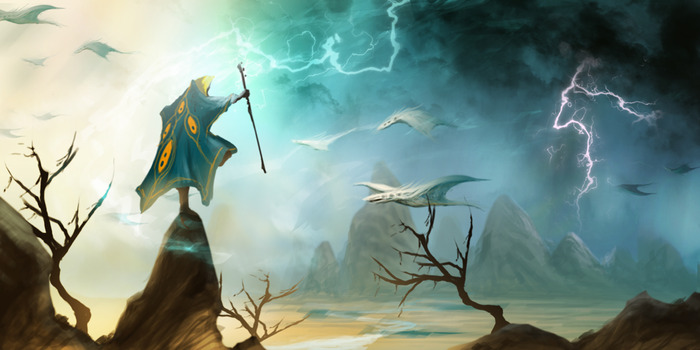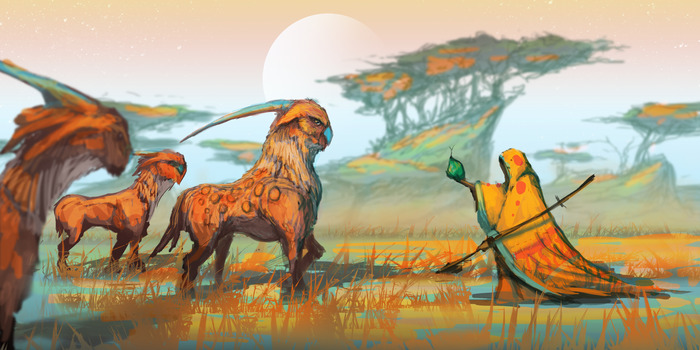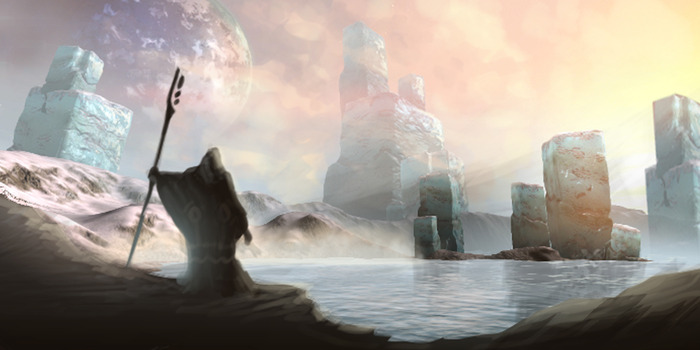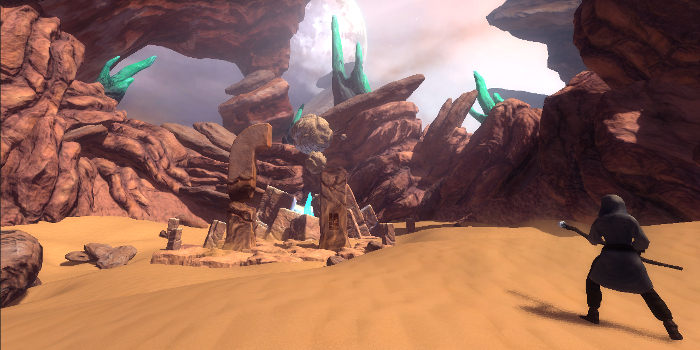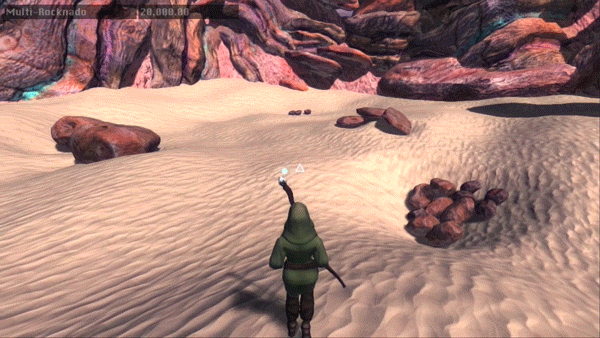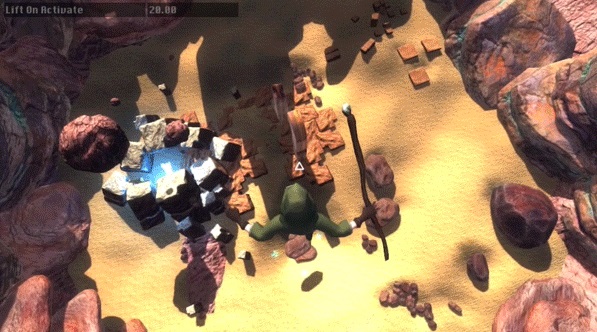Game, Code, Game Some More. Lindsey Handley on CodeSpells
with Greg Micek
[divider]If there’s been one type of game that I’ve grown used to seeing on Kickstarter it’s the ones that promise to gamify the act of learning to code. While some of these campaigns have suceeded, many have failed; because at the end of the day you still need to make a game that’s fun to play before you can try and get people learn from it. The latest of these coding games, CodeSpells, has been a hit on Kickstarter and is trending to raise well over $100,000; more than double its initial funding goal. To learn more about CodeSpells and its creators we recently spoke with Lindsey Handley, COO of ThoughtSTEM, creators of CodeSpells.
Cliqist : Can you briefly introduce yourself?
Lindsey Handley : I’m Lindsey Handley, & I’m super passionate about coding education. I’m one of three co-founders of ThoughtSTEM. Sarah Esper, Stephen Foster, and I founded ThoughtSTEM in 2012 to teach as many kids coding as possible. We’ve started after-school programs & summer camps across the Greater San Diego area, and now we’re developing educational software like LearnToMod, which teaches coding through Minecraft, and CodeSpells!
Cliqist : What is CodeSpells?
Lindsey Handley : CodeSpells is a video game that Sarah & Stephen began developing as part of their PhD thesis work at UC San Diego. The goal was to create a video game that effectively teaches coding to kids. In the game, players play the role of a wizard and craft their magical spells in code. Students LOVE manipulating the world with magic in CodeSpells. Because coding is integrated into gameplay, kids don’t even realize they are learning a useful skillset. We’ve now teamed up with video game developer, Adrian Lopez-Mobilia, and video game artist, Jason Rosenstock, to take CodeSpells to the next level with our Kickstarter.
Cliqist : Is it a game, or educational software? Dare I say Edutainment?
Lindsey Handley : Our philosophy is to make CodeSpells a game that adults & kids would equally enjoy playing & exploring for hours. We want coding education to be a by-product of fun, addictive gameplay. In other words, we would say CodeSpells is more of a “game” than educational software.
Cliqist : How approachable will CodeSpells be? What’s the ideal age?
Lindsey Handley : We think CodeSpells will be useable by kids as young as 7 or 8 years old. We’ve found through our classes & camps in San Diego that students at this age catch on really well to drag-and-drop programming languages, like the one used in CodeSpells. We think CodeSpells could be used in elementary, middle, and high schools, but we think that adults will enjoy gameplay too!
Cliqist : We’ve seen a few of these learn to code games on Kickstarter in the past, how is CodeSpells different?
Lindsey Handley : As far as I’m aware, no other learn to code games have allowed students to explore coding in the same way as CodeSpells. I’ve seen several puzzle games, where students have to put together code blocks or lines of code in order to solve problems. These are great, but CodeSpells is trying to do something different. We think if we can make a sandbox world that is intriguing & exciting, kids will want to learn how to code in a way we’ve never seen before.
Cliqist : Are there plans to introduce languages besides Javascript down the line?
Lindsey Handley : It’s likely that somewhere down the line we’ll introduce other programming languages. Python has been the most popular programming language among our Kickstarter backers so far. We’ve had enough feedback from Kickstarter backers to integrate more languages that this is a logical next step after we’ve finished developing the gameplay for Javascript. But it will be a ways off, so stay tuned!
Cliqist : Where do you see CodeSpells in five years?
Lindsey Handley : I see there being a huge community around CodeSpells, with players sharing their spells & collaborating on new spell projects together. I see there being a huge diversity of different game modes that passionate players have developed using the make-your-own-game mode. I see players from around the world joining each others servers to play mini-games or to duel each other or to play out a quest that their friend coded. I see teachers developing an entire curriculum around CodeSpells & teaching coding through the game. I could also see CodeSpells being used in schools as a fun reward for students – teachers won’t mind because students are learning a skillset that they can take with them far beyond elementary, middle, or high school.
Cliqist : Is CodeSpells a scam, or unattainable dream? What assurances do backers have that they’re backing something that will become a reality?
Lindsey Handley : We’ve been developing CodeSpells for years as a research project, so we know that it actually teaches kids how to code (you can find academic literature on our Kickstarter page). We have a strong team with several years of video game development experience & teaching expertise. CodeSpells is backed by a company (ThoughtSTEM) with a history of successfully following through on projects. ThoughtSTEM has been previously funded by the National Science Foundation (NSF), & we plan to apply for another grant to keep CodeSpells development alive & thriving long after the Kickstarter. Throughout our Kickstarter we’ve tried to assure backers that we are a team of young professionals with the skills necessary to create an amazing video game, with their support.
Cliqist : Can you close us out with a CodeSpells inspired haiku?
Lindsey Handley :
With magical spells
Students engaged by coding
Programmers are born
Thanks to Lindsey for answering our questions! To learn more about CodeSpells be sure to head over to the games’ Kickstarter page.
[divider][Google][pinterest][follow id=”Cliqist” size=”large” count=”true” ]

